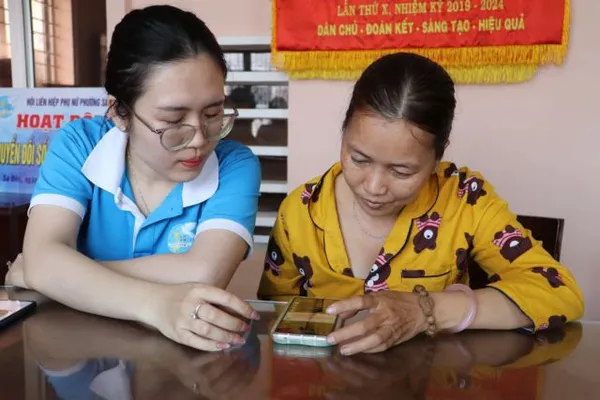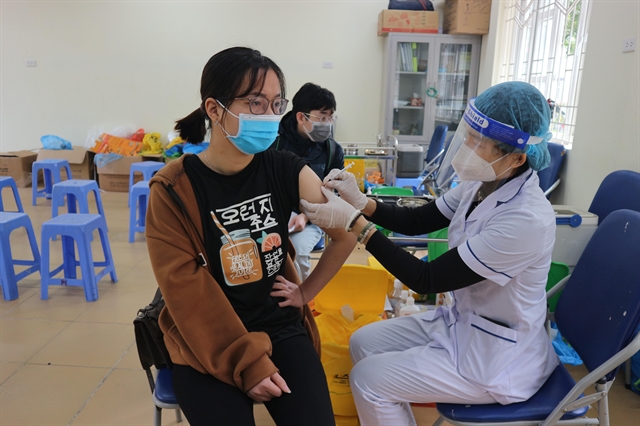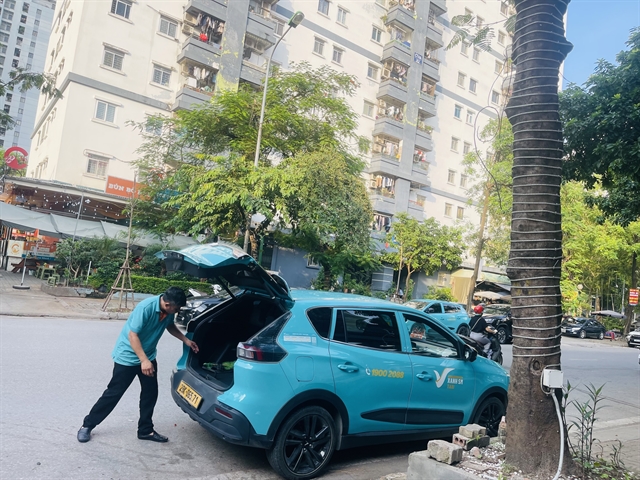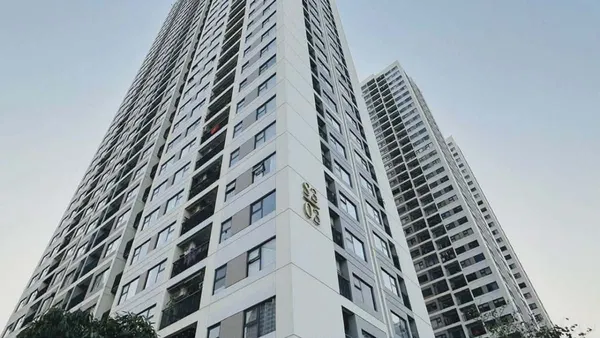 Society
Society


|
| A medical worker gives a COVID-19 vaccine to a resident in Hai Bà Trưng District in Hà Nội. — VNA/VNS Photo Mạnh Khánh |
HÀ NỘI — Hà Nội is preparing medical groups to take care of COVID-19 patients at home while applying technology to supervise them for better management.
The average number of COVID-19 cases in the capital city increased to about 750 infections per day this week, compared to about 460 per day last week. The number is forecast to continue increasing.
“If we do not treat F0 cases at home, all hospitals in Hà Nội will be overcrowded. The city has 15,000 beds for COVID-19 patients but now all beds are full,” said Nguyễn Văn Thường, director of Đức Giang Hospital.
Thường said that managing and supervising F0 cases with slight symptoms at home was being rolled out in 30 districts and towns in Hà Nội.
Different hospitals in Hà Nội reported that they had experienced overcrowding due to rising patient numbers. About 80 per cent of patients with slight symptoms or no symptoms are being treated at mobile medical stations or at home, also putting pressure on the grassroots healthcare system.
About two weeks ago, the major tasks of medical workers at the grassroots level were to provide vaccinations and take COVID tests. Now they are in charge of managing and treating F0 cases at home, said Thường.
“At first they will face lots of difficulties. But with training and close instructions from local departments of health and authorities, they will soon well manage to perform all these tasks,” he said.
Worker shortage
Over the past two years, the grassroots health system has been the core in pandemic prevention and control, especially now with managing and monitoring F0 cases at home.
They proved to be a front-line force that has been working tirelessly for the past two years, however, this system is severely understaffed.
Director of the Hà Nội Department of Health Trần Thị Nhị Hà said medical stations lacked staff, each of them had only about from five to 10 medical workers, including wards with populations of more than 30,000 people such as Hoàng Mai and Đống Đa wards.
“Facilities and equipment at grassroots healthcare stations are degraded, have not attracted high-quality human resources and do not meet the needs of pandemic prevention and control,” she said.
Hà Nội now has 579 ward medical stations, each has at most 10 medical workers, meeting about 30 per cent of demand in normal conditions, not to mention surging case numbers.
Nguyễn Chí Thành, head of the Diseases and HIV/AIDS Control Ward under the Đống Đa District Medical Station, said work at the station had faced obstacles before due to receiving more than 2,000 F0 patients.
Now the district ís a “hot spot” of COVID-19 in Hà Nội, thus all medical staff are working at full capacity but could not keep up with the spread of the virus.
Facing the complicated situation, at a meeting of the Hà Nội Party Committee on Wednesday, secretary Đinh Tiến Dũng requested maximum care for the grassroots medical system, and also asked for response plans when the number of F0 cases increases to 2,000 and 3,000 cases per day.
He called for the participation of non-public medical facilities, retired doctors and medical students in the work. — VNS




